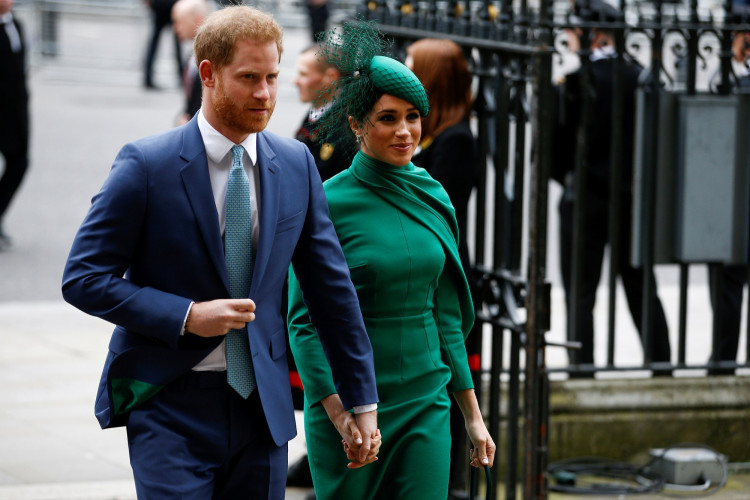A new controversy has arisen, focusing on the Duke and Duchess of Sussex, Meghan Markle and Prince Harry. The couple, who have been at the center of numerous media storms since their departure from senior royal duties, finds themselves entangled in a new debate sparked by Omid Scobie's latest book, "Endgame." The book, particularly its Dutch version, has unwittingly reignited the race row that has been simmering within the Royal Family.
"Endgame," which delves into the lives and challenges faced by Meghan and Harry, mistakenly revealed the identities of the royal family members who allegedly made racially insensitive remarks about their son, Archie's, skin color. Initially brought to public attention in the couple's bombshell interview with Oprah Winfrey in 2021, the issue had remained a matter of intense speculation. However, the Dutch translation of Scobie's book attributed these remarks to King Charles and Kate Middleton, the Princess of Wales, causing a stir in the media and public discourse.
Sources close to the Sussexes have expressed their dismay over this development, emphasizing that Meghan and Harry never intended for these identities to be revealed. The incident is described as "incredibly unfortunate," with assurances that the details were not leaked by anyone in Meghan's camp. The Sussexes' stance points to a desire for privacy and discretion in handling sensitive family matters, contrary to the public revelation caused by the book's translation error.
Scobie, for his part, has expressed frustration and dismay at the error, refusing to apologize until he understands how it occurred. His stance indicates a commitment to journalistic integrity and a desire to maintain the trust of his subjects. However, the translator, Saskia Peeters, defended her work, stating she merely translated what was presented to her, which included the names of the royals in question.
The fallout from this controversy has extended to the royal family's response. Buckingham Palace, in a statement post-Oprah interview, had noted that "recollections may vary," a diplomatic way of acknowledging the complexity of the situation. In the wake of the book's revelations, members of the Royal Family, including King Charles, Queen Camilla, and the Prince and Princess of Wales, have continued with their public engagements, adopting a business-as-usual approach. This response suggests a strategy of "rising above" the controversy, maintaining a focus on their public duties amidst personal challenges.
The situation brings to light the delicate balance of privacy, public perception, and media representation that the Sussexes and the Royal Family grapple with. It underscores the complexities of handling sensitive family issues in the public eye and the impact of media and public scrutiny on personal relationships within the royal family.
As the situation unfolds, questions linger about the long-term implications for the relationships within the British monarchy and how such matters are portrayed and interpreted in the media. The controversy underscores the ongoing challenges faced by the Sussexes and the Royal Family in navigating their roles as public figures with personal lives often under intense scrutiny.






